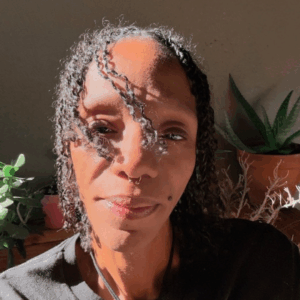I pulled out and dusted off a CD from a long time ago – Suzanne Vega’s “Solitude Standing.” Love the CD – took me back about 25 years. Shockingly, it was released in 1987. I was listening to Tom’s Diner. It is a beautiful and poetic song. It is a poem about a moment in time – a woman sitting in a café over coffee. There was a line that stuck out to me from the song. The singer is looking outside through the window of the diner and this is what she says:
There’s a woman on the outside
Looking inside
Does she see me?
No she does not really see me
‘Cuz she sees her own reflection
I thought about this as a metaphor for human relationships and in particular human communication. When I teach the skills of listening and I watch people begin to practice, an interesting thing occurs. As they practice listening, I will often ask the speaker, “how is that when the other person really listens to you?” There are a variety of reactions, but nearly always, they come down to “I felt heard” and more powerfully for many people, “I felt seen.” It is incredible to witness – this experience of people feeling seen. It is a profound experience for most people partly because it is so rare. Imagine what it would be like if you could listen to people in this way. What would change in your business if people truly felt that you heard them?
So what gets in the way of this listening?
There are a number of good answers to this question, but one of the most prominent reasons is described well in the quote above. We don’t see other people because we are thinking about, focused on our own selves. This is something that happens in many ways. It can be as simple as the fact that we have a lot on our minds and we are distracted from listening by our own personal lives and troubles, or what we are working on at the moment or how quickly we need to get to the next meeting.
Or it could be something I call “self-referencing.” This means that we filter what we hear through the “how does this apply to me?” filter. For example, a good friend tells you about her son learning to drive the car and her experience of riding with him and the emotions that it brought up for her. Rather than really hear about her experience, you remember learning to drive yourself, or you remember teaching your own child to drive. And then you might even share that experience – a typical scenario in a typical conversation. What happens when you do that? First, the other person does not feel heard. Second, in some meaningful way, you have not really and fully heard them.
Many people believe if they get the words and can repeat them back they are truly listening. But there is a distinction between the auditory process of sound coming into your ear and you making sense of the words, and truly listening, which requires attention, focus and true curiosity. You cannot be truly curious if you are referencing your own experience. You cannot see the other person because you see your own reflection.
Try this – and if you’ve been reading my blogs on communication, you have heard this before – be curious, truly curious. Clear away your experience and look for their experience. Really look for it. This will help you see past your own reflection to the person who is in there wanting to be heard. It does not matter if it is a spouse, a child, a co-worker, a subordinate – if you are not really hearing people, they also will not fully engage with you. And that is a problem not just in our homes, but in the workplace. Employee “disengagement” is at an all time high. This is largely because we are not taking the time to focus, be curious and listen.
So go out there and look through the glass. Past your own reflection and everything that is about you, to the other person. You will be amazed what happens.
—
And if you are in Sacramento on November 4, 2015, attend my 1/2 day training on “nuts and bolts of communication.” Click the link for more information and to register: https://mclarencoaching.com/coaching-for-businesses-and-corporations/workshops-and-trainings/
You will learn more about self-referencing, listening, determining another’s world view, and how to change the way you communicate to become a better listener, more curious and more clear, and obtain the results you really want.






